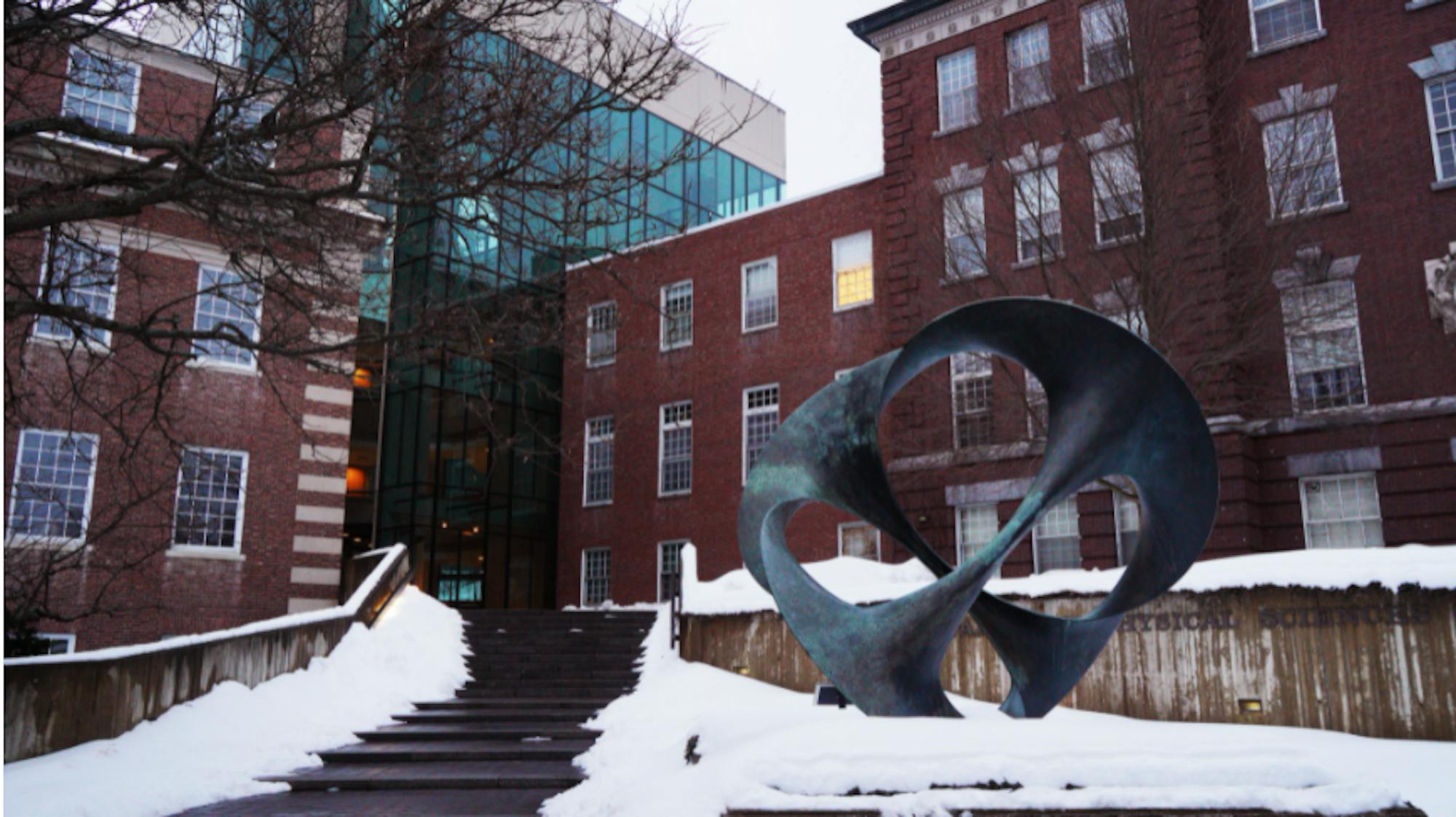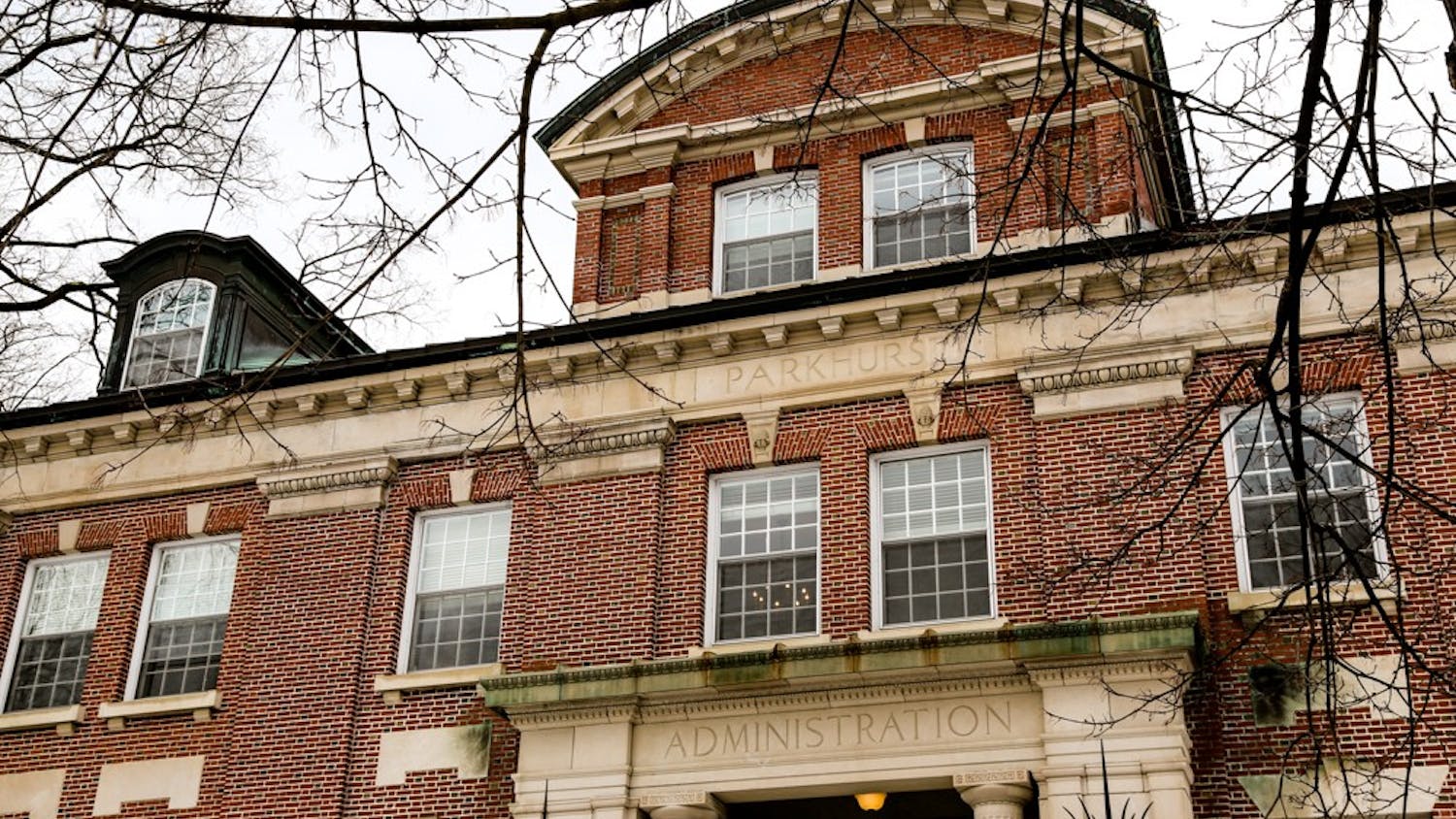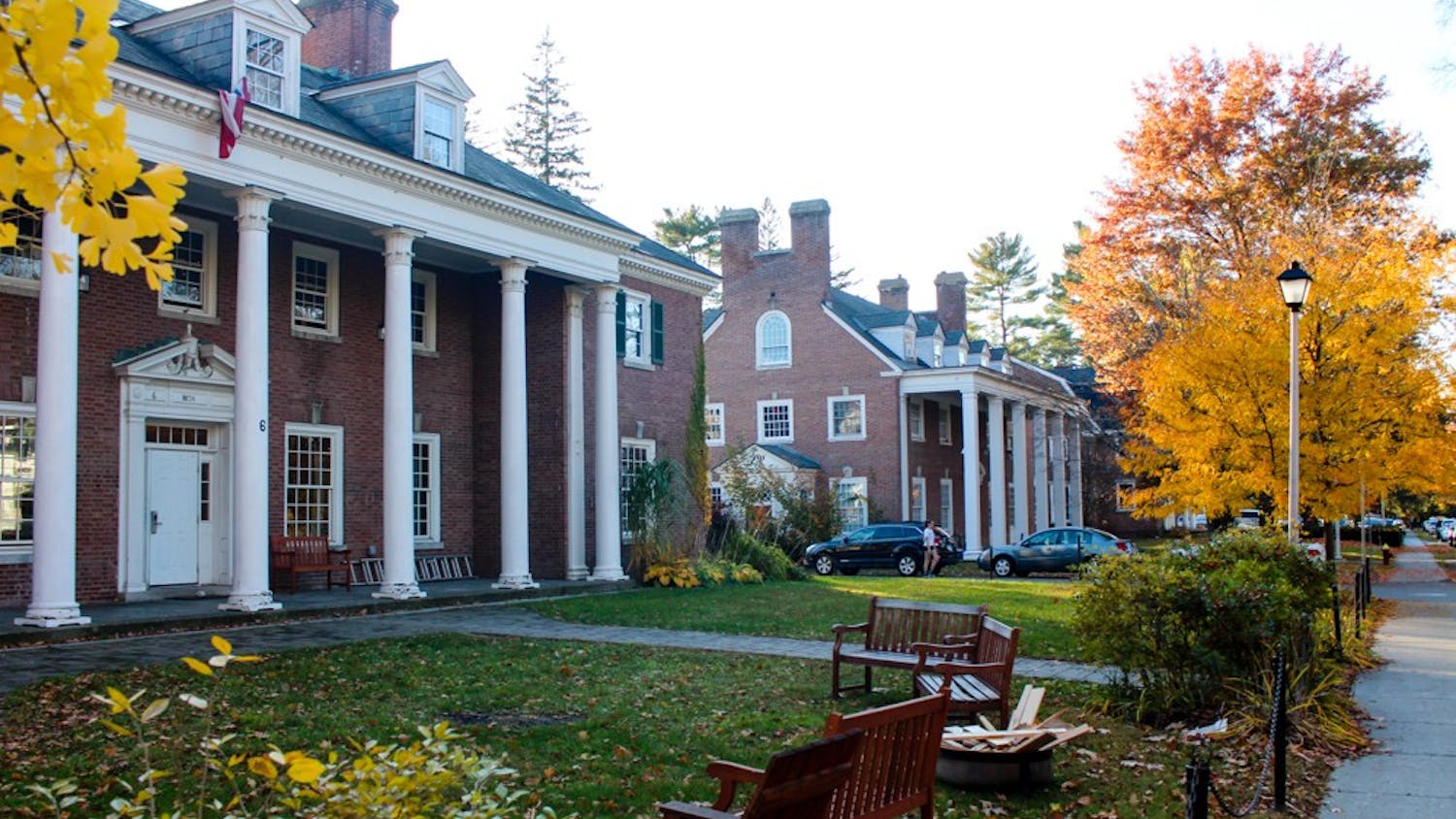On May 16, Dartmouth announced that former U.S. ambassador to the United Nations Human Rights Council Eileen Chamberlain Donahoe ’81 and Nike CEO John Donahoe ’82 gifted $20 million to the College to support underrepresented groups in science, technology, engineering and math. According to Dartmouth’s press release, the gift’s namesake is “pioneering biologist” and valedictorian of the Class of 1907 E.E. Just.
The gift will fund a six-year faculty fellowship program, with one fellowship granted to a faculty member in a STEM field each year, according to the press release. The gift will also endow and expand the preexisting E.E. Just Program, providing additional mentorship, networking and internship opportunities to underrepresented students pursuing degrees or careers in STEM disciplines.
According to its website, the E.E. Just Program — available to both undergraduate and graduate students — offers several initiatives designed to connect underrepresented minorities to opportunities in STEM fields. Programming begins before freshmen arrive on campus with the Dartmouth Adventures in STEM pre-orientation summer course, and extends to graduation. The program’s director, math professor Craig Sutton, described the program as a series of “on- and off-ramps that are designed to meet students where they are in their developmental arc.”
“[The gift is] definitely a game changer for the program in terms of ensuring that it’s an enduring force for change on the campus,” Sutton said. “It helps to shore up some of what we’re already doing, but it also allows us to begin to expand and open up new possibilities for the program.”
According to Sutton, the new funding will allow more students to participate in the E.E. Just Program, and may help to revive the E.E. Just Science Symposium in August of 2022 that has not run since 2014 due to a lack of funding.
The symposium would “[provide] an opportunity for the entire Dartmouth community to engage in interdisciplinary dialogue with an international panel of leading experts and visionaries working in STEM,” Sutton said. Past speakers have included Jaron Lanier — widely considered to have founded the field of virtual reality — and Sylvester James Gates — a member of the National Academy of Sciences — he added.
According to Delmont, many students abandon their STEM degree after a year or two at Dartmouth. However, 85% of students affiliated with the E.E. Just Program graduate with STEM degrees, he said.
Sutton noted that the program’s ability to “form a cohort” helps explain the high STEM retention rate.
“[It’s] almost like going on [First-Year Trips],” Sutton said. “This is their first encounter with other students, and they're all geeked up to see each other. And then we all find that they have this interest in STEM and this probably has this reinforcing effect… Having this community to fall back on is something that helps people stay with it.”
As part of its Call to Lead campaign, the College also announced a $60 million investment plan to pursue six diversity and inclusivity initiatives, including a diversity, equity and inclusion accelerator fund, the Tribal Services and Solutions project and an institute for Black scholars.
Since 2004, the undergraduate student body has climbed from roughly 30% students of color to about 40% today. However, history professor and special advisor to College President Phil Hanlon on faculty diversity Matt Delmont noted that faculty diversity “hasn’t kept pace.” Nearly 20% of Dartmouth faculty members are people of color; the College has set a target of 25% by 2027.
“The undergraduate student body is much more [racially] and ethnically diverse today than it was 20 years ago,” Delmont said. “But I wouldn't say that the faculty or the campus climate has really caught up to where our students are. The first thing is making sure that Dartmouth is positioned to serve the students who are here today.”
Engineering professor and E.E. Just Program advisor Kofi Odame — the only Black faculty member in the engineering department — noted that he has to strike a balance between his involvement in diversity efforts and his job.
“Being the only Black faculty in engineering, it means that a disproportionate amount of service related to inclusivity and diversity falls on my shoulders,” Odame wrote in an emailed statement to The Dartmouth. “This is not a problem per se, but there are only a finite number of hours in the day, and unfortunately, this type of service takes away from my research and teaching duties, which, frankly, are what I am ultimately evaluated on.”
Odame wrote that he hopes the gift will nudge Dartmouth towards a campus demographic reflective of the broader world.
“If Dartmouth wants to be at the forefront of educating and creating future global leaders, then we cannot have a parochial, one-dimensional view of the world,” Odame wrote. “We must have an understanding and appreciation of the breadth and diversity of the human experience.”
According to Delmont, Dartmouth’s relatively small size allows the College to enact changes more quickly than its larger peer institutions.
“That's the power of both this gift but also the largest set of initiatives,” Delmont said. “If we can dedicate ourselves to this over the next few years and get the resources in place to… build this infrastructure, I think it gives us the potential to change this campus much more quickly than one may be able to change things at [Harvard University] or [Yale University] just because the scale here is small.”




